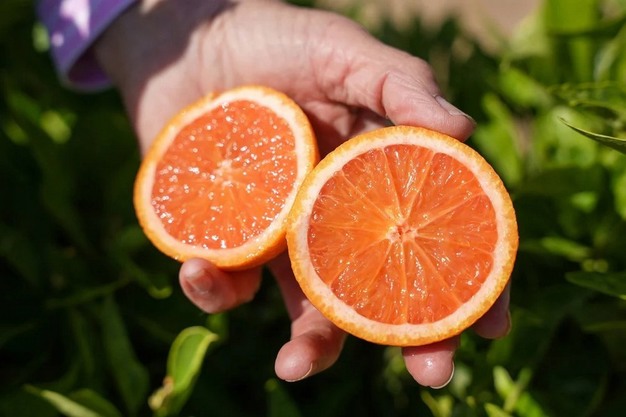In California, agricultural research is closely tied to farming practices in the field. With farming contributing about US$60 billion annually to the state's economy, universities and growers are working together to address production challenges and evaluate new varieties.
One example is the Rosy Red Valencia orange, a variety patented in 2018 by citrus grower Nancy Lange in Tulare County. The variety was developed after Lange noticed a mutated limb, known as a "sport," on one of her Valencia orange trees. The limb's leaves appeared lighter and more pointed, and the fruit developed a rosy blush on the rind with pink-tinted flesh.
 © Nancy Lange/UC
© Nancy Lange/UC
To determine whether this mutation could become a stable and safe commercial variety, Lange sought support from the University of California's Cooperative Extension and the Citrus Clonal Protection Program (CCPP) at UC Riverside. The CCPP tests and certifies citrus budwood to ensure new cultivars are disease-free before nurseries propagate them.
The process of establishing the Rosy Red Valencia took three years. Following the trials, stock trees were created to supply certified material for nurseries. Since its approval, thousands of Rosy Red Valencia trees have been planted, and commercial harvests have begun.
According to Lange, the process of rigorous testing and certification was essential, especially given the risks posed by citrus diseases such as Huanglongbing (HLB), also known as citrus greening. She noted that the safeguards ensured the variety could be introduced without jeopardizing existing citrus production.
The Rosy Red Valencia demonstrates how grower observations, combined with university-led testing and certification programs, can bring new fruit varieties to market while maintaining biosecurity within the citrus sector.
For more information:
University of California
Tel: +1 510 883 8232
Email: [email protected]
www.universityofcalifornia.edu
